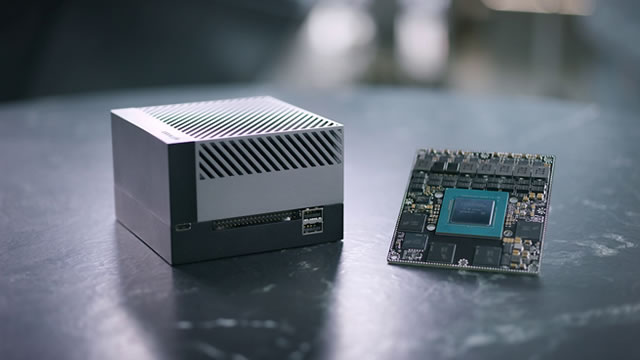Nvidia Corporation: Navigating the US-China Trade War
Nvidia Corporation, a leading technology company specializing in graphics processing units (GPUs) and system-on-chip units for the gaming and professional markets, has been facing significant challenges due to the intensifying US-China trade war. This geopolitical conflict has resulted in increased costs and decreased sales for the corporation.
Impact on Sales
The US-China trade war has led to tariffs on various technology products, including those manufactured by Nvidia. These tariffs have negatively affected the sales of Nvidia’s products in China, which was once a major growth market for the company. According to recent reports, Nvidia’s revenue from China declined by approximately 50% year-over-year in the fourth quarter of 2018.
Increased Costs
The trade war has also resulted in increased costs for Nvidia due to tariffs on components sourced from China. Nvidia’s manufacturing partners, such as Taiwan Semiconductor Manufacturing Company (TSMC), have also been impacted by the trade war, leading to potential supply chain disruptions. These increased costs have put pressure on Nvidia’s gross margins.
Financial Performance
Despite these challenges, Nvidia’s financial performance remains resilient. Earnings estimates have seen minor downward revisions, but the company’s EBITDA (earnings before interest, taxes, depreciation, and amortization) and FCF (free cash flow) trends suggest that the corporation is able to weather the trade war storm. Furthermore, some acceleration in shipments is expected due to strong demand for Nvidia’s GPUs in the data center market.
Valuation and Rating Adjustments
Despite Nvidia’s resilient financial performance, the ongoing trade war has led to valuation adjustments. The company’s price target has been revised downward from $161.78 to $124.60. Additionally, the rating for Nvidia has been downgraded from “strong buy” to “buy” by some analysts.
Impact on Individual Investors
For individual investors holding Nvidia stock, the trade war’s impact depends on their investment horizon and risk tolerance. Those with a long-term investment horizon and a willingness to weather market volatility may view the current price as an opportunity to buy at a discount. However, those with a shorter-term investment horizon or a lower risk tolerance may choose to sell their Nvidia stock and seek out more stable investments.
Impact on the World
The US-China trade war’s impact on Nvidia is just one example of the broader economic consequences of this geopolitical conflict. The trade war has led to increased uncertainty in global markets, potential supply chain disruptions, and decreased trade flows. These factors can have far-reaching consequences, including reduced economic growth, increased inflation, and decreased consumer confidence.
Conclusion
Nvidia Corporation, like many other technology companies, faces significant challenges due to the US-China trade war. The conflict has resulted in decreased sales in key markets and increased costs for the corporation. However, Nvidia’s financial performance remains resilient, and the company is expected to see some acceleration in shipments. Valuation adjustments have led to a new price target and rating downgrade. For individual investors, the trade war’s impact depends on their investment horizon and risk tolerance. For the world, the trade war’s consequences extend beyond Nvidia and include increased uncertainty, potential supply chain disruptions, and decreased trade flows.
- Nvidia faces challenges due to US-China trade war
- Decreased sales in China
- Increased costs due to tariffs on components
- Resilient financial performance
- Acceleration in shipments expected
- Valuation adjustments lead to new price target and rating downgrade
- Impact on individual investors depends on investment horizon and risk tolerance
- Impact on the world includes increased uncertainty, potential supply chain disruptions, and decreased trade flows





